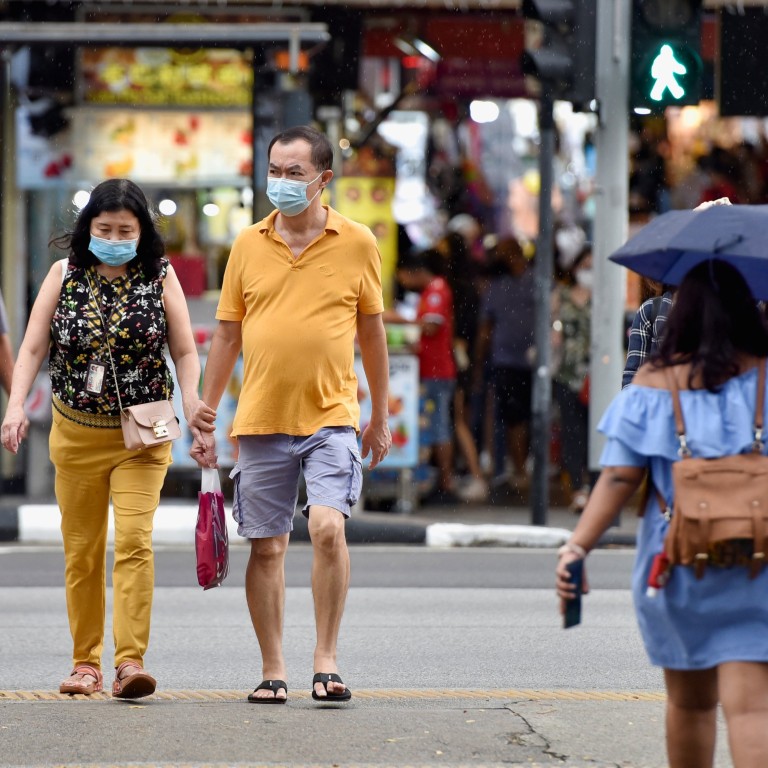
Omicron: Singapore reports two imported cases of new Covid-19 variant
- Both cases arrived from Johannesburg and were isolated upon arrival on December 1, health ministry says
- Neither patient interacted with the community and no evidence of community transmission
The health ministry said both cases were imported; they had tested “preliminary positive” and been isolated upon arrival from Johannesburg on December 1.
In neither case had the patient interacted with the community and there was no evidence of community transmission, the ministry said.
One of the cases involved a Singapore permanent resident who was flying from Mozambique and had transited through Johannesburg, while the other was a Singaporean who flew directly from South Africa. Both tested negative for Covid-19 before their flight.
What Asian countries are doing to fight the Omicron variant
Contact tracing was underway and 19 passengers on the same flight had tested negative, it added.
The World Health Organization classified Omicron as a “variant of concern” on November 26, with its chief Tedros Adhanom Ghebreyesus saying on Wednesday that he expected the number of countries to grow.

Scientists are scrambling to find out if the variant is more virulent than its Delta predecessor and whether vaccines are less effective against it. Tedros said that WHO advisory groups had met in the past few days to evaluate the emerging evidence but stressed the importance of vaccinations.
Singapore has one of the highest vaccination rates in the world, with 96 per cent of its eligible population fully vaccinated. Some 27 per cent have received their booster shots.
The island republic has in recent weeks begun easing both its border and domestic restrictions but authorities remain wary of the evolving situation.
It had earlier banned entry and transit for non-residents from seven African countries, and halted its quarantine-free vaccinated travel lanes with Qatar, Saudi Arabia and the United Arab Emirates due to their proximity to countries affected by the Omicron variant. It also tightened testing requirements for other incoming travellers, now mandating pre-departure and on-arrival tests for all people entering Singapore.

